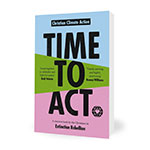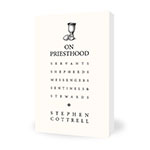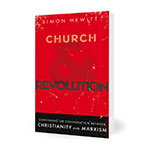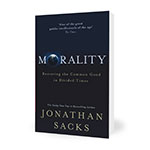Reviews – June 2020 - Reform Magazine
Twenty shorts
The Uncertain Kingdom
Various UK directors
Certificate 15, 20 x ten minutes approximately
Released online from 1 June: BFI Player, iTunes, Google Play, Amazon and Curzon Home Cinema
Why watch one film when you can watch 20?
The Uncertain Kingdom is an amazing collection of shorts covering various aspects of contemporary UK life before the Covid-19 crisis. Most are around ten minutes, with the shortest under three and the longest just over 20. There’s not one duff film in there. The films’ separate stories span such art forms as animation, dance, documentary and drama and such issues as colonialism, healing, heritage and class.
In Ernie, a school cleaner votes Remain after being picked on by fellow workers and his dying father, and is badly let down by NHS bureaucracy. A homeless man begging outside a slick corporate building can’t be removed by security in Pavement because he is slowly sinking, singing ‘Jerusalem’ as the surface closes over his head. British People sees a Chinese-British woman struggling with her immigrant background as she attempts selection as the local Conservative candidate.
The Conversation uses dance to interrogate black men’s feelings about white women protesting that black lives matter. We Are Not The Problem uses drawn animation to explore experiences of racism by Poles who put more in to the British economy than they take out. There are documentary portraits of gyms, saunas and foodbanks in, respectively, Strong Is Better Than Angry (pictured above), Sauna and Left Coast. There are dramas: about homophobic violence in Isaac And The Ram, about an island where Death has been locked in a barn in the whimsical Death Meets Lisolette, and about a Bolivan immigrant worker caring for her sick son who discovers a tree with healing properties growing in a store cupboard (The Life Tree). In Swan, after the Brexit vote, Mark Addy takes the British citizenship test and wins the chance to become a swan.
This adds up to a complex, multi-voiced set of views of where we in the UK now find ourselves. Uncertain, for sure. Many ways of looking and questioning are represented here, with no pat answers. Whether watched individually, in clusters of two or three, as shorts before a main feature, or as presented (in two full programmes of ten films apiece), these utterly compelling shorts make for terrific discussion starters.
Jeremy Clarke is a film critic
___
Christian climate activist’s guide

Time to Act
Christian Climate Action
SPCK
£9.99
ISBN: 9780281084463
Christian engagement with the climate crisis started well before Greta Thunberg’s rallying call and the worldwide response of which the climate protest movement Extinction Rebellion (XR) is a part. Christian Climate Action, founded in 2012, quickly became an important participant in XR activities and has now produced this multi-authored resource book, comprising 39 short chapters in three parts: The head (‘thinking through the present moment’), the heart (‘the experience and emotions of the climate emergency’) and the hands (‘practical advice’).
The surprisingly strong message of hope comes from a combination of ‘doing something’ together with a deep spiritual connectedness. Some contributors address the sense of bereavement of many environmentalists. Other writers helpfully explore the rationale for civil disobedience and nonviolent direct action. The best chapters combine often moving personal stories with theological reflection. Anyone involved in the October 2019 XR action will be reminded of the mix of serious intent and carnival atmosphere; this book also helpfully explains what was going on in the background. (Now I know why it took me three days to find the Faith Bridge!)
Time to Act was compiled as a handbook for activists. I was initially disappointed that the only songs recommended are old favourites, rather than some of the fine eco hymns and songs that are now available. But while the latter could be used to help congregations deepen their theological understanding of the climate emergency, the former are useful during an action.
This book assumes that the reader already understands the urgency of the climate crisis. It does not develop a green theology of creation. Time to Act’s purpose is to encourage, support and enable more activism. It provides a good introduction to Christian engagement with climate justice. But be warned: reading this book could transform you into a rebel!
Peter Skerratt is a member of St Andrew’s United Reformed Church, Ealing, west London
___
Advice for ministry

On Priesthood: Servants, shepherds, messengers,
sentinels and stewards
Stephen Cottrell
Hodder & Stoughton
£12.99 (hardback)
ISBN: 9781529360981
Stephen Cottrell will most likely be best known for being the Archbishop-designate of York. This book is a collection of writings based on sermons he has preached to ordinands.
The book is divided into chapters which explore the attributes of priesthood, as Cottrell views them. His focus and emphasis are, obviously, Anglican, and the nature of the state Church is at the heart of all that he writes. Since reading On Priesthood, I have a much greater appreciation of some of the constraints of hierarchy, parish responsibility and the potential expectations of being a public figure in an established Church, that some of our Anglican colleagues are faced with.
The power in this book is the gentle reminder that ministers (church-related community workers included) are not alone in the sharing of God’s love and mission. Cottrell offers a beautiful analogy, which is surely true for all denominations, of the Church as an orchestra: the ‘priest’ needs to see themself as the conductor, combining and harmonising different strands of the symphony, and not as the soloist.
The theology and practices examined in this book felt far removed from the Reformation thinking that many of us uphold, especially the concept of the priesthood of all believers. But this book wasn’t written for non-Anglicans.
This is a charming book, filled with insights into the Anglican understanding of priesthood and calling. I found myself reflecting on the words of significance and empowerment for my ministry which were preached at my ordination. I can see how Anglicans preparing for ordination would similarly be empowered and comforted by Cottrell encouraging them to practice self care, build in time for renewal and to make space for God to be God. This book is a helpful reminder to all of us – ordained, commissioned or neither – to allow God to do what God needs to do through us.
John Grundy is Minister of St Andrew’s United Reformed Church, Brockley, and St Michael’s United Church, New Cross, both in south east London
___
Why Marxism should matter

Church and Revolution: Continuing the conversation between Christianity and Marxism
Simon Hewitt
Sacristy Press
£9.99
ISBN: 9781789590913
The casual browser might take this to be a book from an earlier age. It is several decades since churches gave their support to revolutions, and since Christianity and Marxism were in any sort of conversation. The worn-looking cover adds to the illusion. Yet, this is a brand-new publication with, surprisingly, an up-to-date feel.
The point of the book is two-fold: to persuade Christians uneasy about capitalism to take a fresh – or even first – look at Marx; and, to show ‘secular leftists’ that Christians are not inherently reactionary. It will probably appeal to more of the former than the latter, but both would find it gave them food for thought. More importantly for the author, who defines both Marxism and Christianity as practices, and acknowledges his commitment to both, it could inspire them to act.
The writing is clear and admirably concise. In barely 100 pages, the author revisits Marx’s views on religion, takes several of his key insights, and shows how Christians could find them helpful. Marx’s criticism of religion, for example, which is more about exposing idolatry than attacking ideas, can be a bridging point with Christianity. Similarly, his assertion, that ideas are always related to the economic context in which they arose, can prompt a fresh look at the power of institutions (including the Church).
Older readers are bound to feel a touch of nostalgia in these pages. It is good to see the work of Catholic philosophers given a fresh airing, including the profound insight that both Christianity and Marxism seek ultimately the conditions which will necessitate the end of their existences. But Hewitt also relates his discussion to contemporary events, including the Brexit vote and Trump’s election. The Covid-19 pandemic, which has led even a Conservative administration to acknowledge that the market cannot meet every need, perhaps gives it further relevance.
Andrew Bradstock is a teacher, writer and former United Reformed Church Secretary for Church and Society
___
Modern morality

Morality: Restoring the common good in divided times
Jonathan Sacks
Hodder & Stoughton
£20 (hardback)
ISBN: 9781473617315
Contemporary morality emphasises the rights of the individual, the centrality of tolerance, and sexual freedom. One suggestion as to this morality’s origins is that it was an instinctual response against Hitlerism, enshrining the rights of people to be who they are. As such, it was in part a protest against the complicity of institutional religion in the rise of fascism and Stalinism. If so, Churches failed to see that the real ethical questions were about power and authority, not sex.
There is just a hint that Lord Sacks appreciates that when he says, towards the end of his book, that ‘perhaps after two world wars, we simply reached the conclusion that previous generations had led us into the wilderness rather than the Promised Land.’ For the most part however, Sacks presents an articulate and impassioned argument that individualism began in the Reformation, wound its way past various Enlightenment philosophes, and ended up in the 60s liberal revolution. It has contributed to our present crisis of identity politics, victimhood and post-truth. His solution is a return to moral choice as an expression of God-given uniqueness and dignity.
What is questionable is not the answer but the analysis. All was not rosy in the ‘we’ culture of late medieval Europe. Sacks is a stern critic of consumption, yet a fervent defender of the morality of free markets – but unfortunately, free markets are driven by trade and consumption. And, the roots of new secular humanist ethics, which he so deplores, may be in rather different places than he thinks.
Nonetheless, Sacks is always worth reading. He writes beautifully. He is a fine exegete of the Hebrew Scriptures, and his belief in the common good is profound. This might have been a different book had it been written after our lockdown released such a flood of human goodness.
David Cornick is a retired minister and former General Secretary of both the United Reformed Church and Churches Together in England
___
This article was published in the June 2020 edition of Reform







Submit a Comment